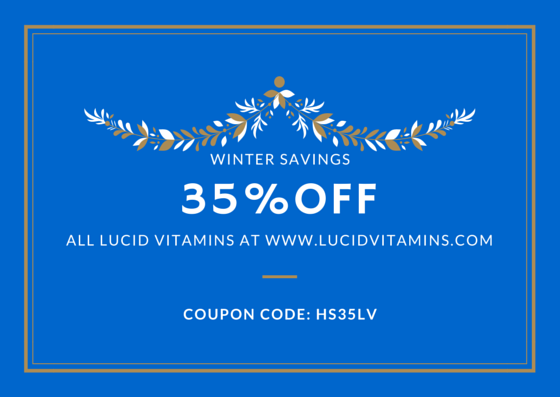
Taking compatible supplements just makes sense.
Supplements that you can absorb, that won’t cause toxicity or further imbalances in your body, that are suitably combined to maximize health outcome—this seems like a really good decision.
A clear and lucid decision.
Science tells us that certain vitamins prevent the utilization or availability of others, and that particular minerals similarly block absorption of other necessary minerals. It appears (to us here atLUCID) that it’s only logical to take those nutrients separately. This is, of course, why we have developed our products!
However, as logical as this theory and our products may sound, you might be wondering how this understanding and science applies not only to the supplements you are currently taking, but also to the food you eat.
There are many types of foods that naturally contain so-called ‘incompatible’ nutrient combinations. We’ve got grains with all the B-vitamins (some of which block the absorption of others), mushrooms that are complete with zinc and copper (which compete for absorption), and animal liver, which has, well, everything in it almost. How is it that we manage to derive nutrition from these foods even when their nutrients appear entirely incompatible?
Well, the simple answer is that food just doesn’t act the same way that supplemental vitamins and minerals do.
Whereas chemically isolated nutrients and vitamins used in supplements are known to have a specific relationship to other nutrients and compounds, the ingredients of food just don’t interact with each other in an easily definable manner. While we can measure the nutrition content of a particular food, there are also synergistic relationships occurring in the plant or animal product that we can’t entirely summarize or understand from a scientific point of view.
The nutrients in food interact with each other in entirely different ways than they do when isolated and recombined in a supplement.
Because of this, even if we eat high zinc-containing foods (which often have a fair amount of copper in them as well), our bodies will use the appropriate amount of each mineral to balance our systems, rather than having the minerals fight for absorption and potentially not gain benefit from either.
The intelligence of the food appears to correspond with an innate intelligence in our body that allows us to use the nutrition appropriately, even when component food nutrients appear to be incompatible.
As intelligent as mankind is, we have yet to figure out how to construct a vegetable (or supplement) in a lab that approximates the intricacy and balance that exists in nature. It is for that reason that we firmly encourage all our clients and friends to focus on getting the majority of their nutrition from real food, as vitamin supplements will never entirely fulfill the nutritional requirements normally supplied by fresh food.
However, given that most people don’t generally consume an ideal diet composed of natural foods grown in an ideal environment, supplementation is often necessary to maintain good health. Not just any supplementation, however—we’re specifically talking about supplementation that is intelligent, like LUCID.
So in short, don’t worry about the compatibility of your foods. That avocado or mushroom or grain is absolutely perfect in its design, and your body will know what to do with it.
But do absolutely consider compatibility with everything else that you put in your body. Supplements created by mankind do not operate in the same way as our food, and must be approached and utilized with compatibility in mind.
Supplement with clarity and care. Supplement with LUCID.
